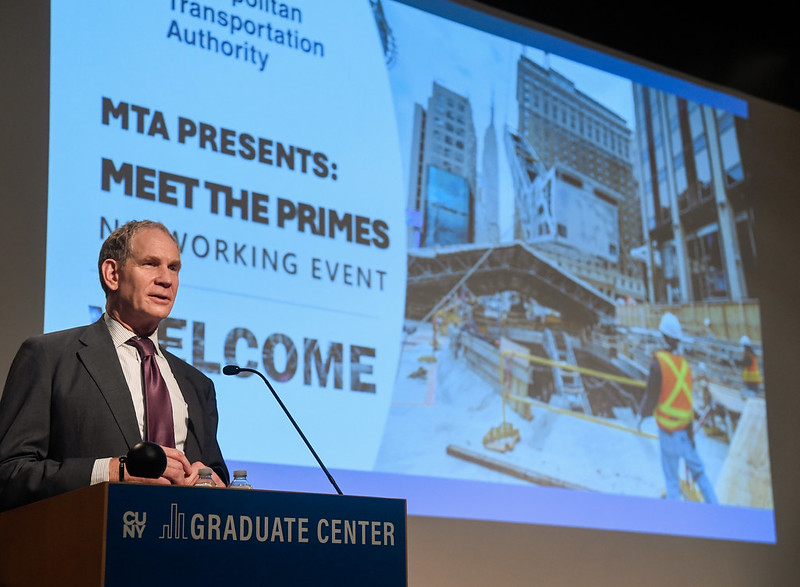The Metropolitan Transit Authority announced yesterday that it will be awarding up to $7.5 billion in contracts to historically underutilized businesses over the next five years, as part of its 2025-2029 Capital Plan. According to a press release, the funds will go to “New York State Certified Minority- and Women-Owned Business Enterprises (MWBE), Service-Disabled Veteran-Owned Businesses (SDVOB), and/or Disadvantaged Business Enterprises (DBE).” The MTA hosted a networking event at the CUNY Graduate Center to promote making connections between prime contractors with potential subcontractors that fit these designations. This action from the MTA follows a pledge from earlier this year to commit to at least $1 billion of work done by MWBE/DBE firms every year.
“We announced our next five-year Capital Plan this month and there’s a lot of work to be done,” said MTA Chair and CEO Janno Lieber. “When we talk about rebuilding and improving the transit system, this includes billions of dollars of work to be done by our diverse contracting community. As the fourth largest employer in the region, the MTA is proud to partner for an equitable and inclusive economy.”
The news comes as the MTA faces longstanding pressure over its finances in a struggle between the agency, the city government, and Albany. Governor Kathy Hochul managed to piece together a deal last year to save the beleaguered agency – which was hit particularly hard by the COVID-19 pandemic, but was in financial trouble prior to it as well due to long-overdue modernizing repairs – by raising taxes on businesses and arranging for new funding streams from the state and city governments. The MTA has also benefitted recently from federal funds from President Biden’s Bipartisan Infrastructure Law, stating in their press release that those funds have “already led to hiring of hundreds of people on projects based in Brooklyn and Queens.”
This past June, however, Hochul paused congestion pricing, a move which it is estimated would have raised a much-needed $15 billion for the MTA, funds that the new Capital Plan assumes will be made up somehow. Just last Friday, a State Supreme Court Judge refused to dismiss two lawsuits against the governor aimed at forcing her to implement congestion pricing, which was signed into law in 2019, and was due to begin on June 30th of this year. The fate of the public transit agency also depends on the result of the presidential election in November, as a victory for Trump could significantly affect the vital contributions from the Federal government to the MTA’s projects over the next 5 years.












